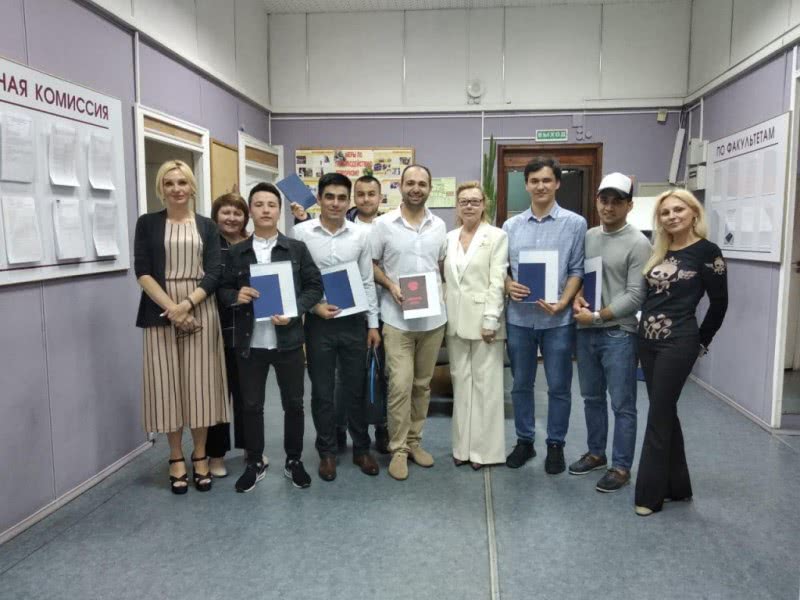Fees
These annual fees are for full-time students who begin this undergraduate course here in 2022.
| Fee status | Pre-clinical annual course fees |
| Home | £9,250 |
| Overseas | £36,800 |
Pre-clinical fees are charged in years 1, 2 and 3.
Fees for the later years have not yet been confirmed but please note that these may be different from the pre-clinical fees. Clinical fees are charged in years 4 to 6. As a guide, these are the annual fees for students who will complete the pre-clinical stage of their course and progress to the clinical years in 2022. Please note that these fees apply to continuing students only.
| Fee status (note these are the fee statuses that apply to students who started courses in 2020/21 and before) | Clinical annual course fees |
| Home | £9,250 |
| Overseas | £48,600 |
Further details about fee status eligibility can be found on the fee status webpage.
For more information please refer to our course fees page. Fees will usually increase annually. For details, please see our guidance on likely increases to fees and charges.
EU applicants should refer to our dedicated webpage for details of the implications of the UK’s departure from the European Union.
Living costs
Living costs at Oxford might be less than you’d expect, as our world-class resources and college provision can help keep costs down.
Living costs for the academic year starting in 2022 are estimated to be between £1,215 and £1,775 for each month you are in Oxford. Our academic year is made up of three eight-week terms, so you would not usually need to be in Oxford for much more than six months of the year but may wish to budget over a nine-month period to ensure you also have sufficient funds during the holidays to meet essential costs. For further details please visit our living costs webpage.
Financial support
|
Home |
A tuition fee loan is available from the UK government to cover course fees in full for Home (UK, Irish nationals and other eligible students with UK citizens’ rights — see below*) students undertaking their first undergraduate degree**, so you don’t need to pay your course fees up front. In 2022 Oxford is offering one of the most generous bursary packages of any UK university to UK and Republic of Ireland students with a family income of around £42,875 or less, with additional opportunities available to UK students from households with incomes of £27,500 or less. This support is available in addition to the government living costs support. *For courses starting on or after 1 August 2021, the UK government has confirmed that EU, other EEA, and Swiss Nationals will be eligible for student finance from the UK government if they have UK citizens’ rights (i.e. if they have pre-settled or settled status, or if they are an Irish citizen covered by the Common Travel Area arrangement). The support you can access from the government will depend on your residency status For comprehensive funding information for medicine students, please see here. |
|
Islands(Channel Islands and Isle of Man) |
Islands students are entitled to different support to that of students from the rest of the UK. Please refer the links below for information on the support to you available from your funding agency: States of JerseyStates of GuernseyIsle of Man |
|
Overseas |
Please refer to the «Other Scholarships» section of our . |
*If you have studied at undergraduate level before and completed your course, you will be classed as an Equivalent or Lower Qualification student (ELQ) and won’t be eligible to receive government or Oxford funding
Pre-clinical Medicine
In the third term of the second year, students who undertake a research project may wish to remain in Oxford after the end of full term to facilitate completion of their project. (See the likely range of living costs for an additional month in Oxford.) However, this extended residence in Oxford is not a requirement and students should be aware that no financial support is available to help with any additional living costs during this time.
Clinical Medicine
Students in the Clinical School study for extended terms. You will need to budget for higher living costs in these three years, as you will be required to be in Oxford for longer than the standard terms. (See the likely range of living costs for an additional month in Oxford.)
- Year 4 – 40 weeks
- Year 5 – 48 weeks
- Year 6 – 48 weeks, including 10 weeks elective study (see below)
For more information about fees and funding for this course, please see Funding for UK/EU Medical Students.
Досуг и развлечения
В выборе места проживания студенты вуза не ограничены. Это может быть студенческая резиденция, комната в частном доме, отдельная квартира.
Свободные часы можно посвятить спорту: плаванию в бассейне, игре в теннис, катанию на коньках. Среди студентов университета популярен футбол.
Конечно же, досуг не обходится без походов в театр и кино, посещения клубов по интересам и национальных объединений.
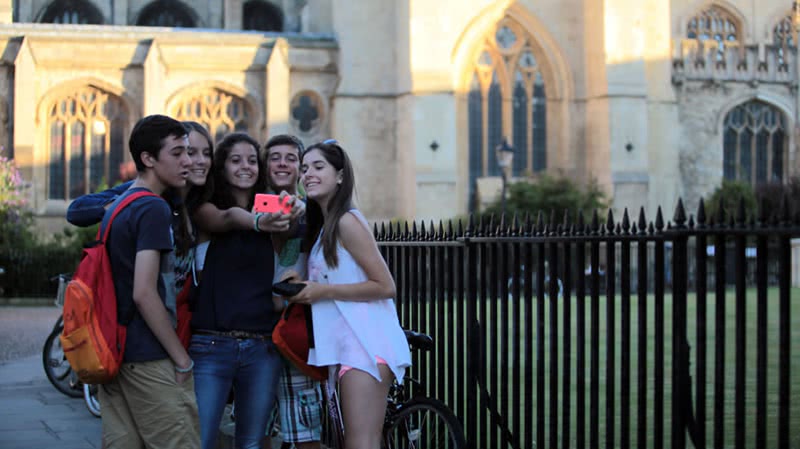
Университет более чем многонационален. Обучение в Oксфорде для русских ─ распространенное явление, но наряду с ними в вузе учатся выходцы из Африки, Ближнего Востока, европейских стран. Каждый студент вносит неповторимую частичку своей культуры в общую атмосферу университета.
Правила подачи заявки
Учащимся Оксфорда может стать любой человек. Но прежде чем начать учебу, необходимо будет выдержать вступительные испытания (в зависимости от выбранной для изучения профессии), о которых подробно рассказано на онлайн-портале UCAS. Это общий для всех высших учебных заведений Объединенного Королевства портал. Заявка на обучение подается там же.
Также необходимо сдать тест на знание английского языка. Русскоязычным абитуриентам достаточно успешно пройти квалификацию A-Level либо IB (International Baccalaureate), чтобы учиться бесплатно. Кроме того, допустимо прохождение американских систем тестирования SAT и ACT. Проходные баллы по тестам:

- Internet TOEFL — 100;
- IELTS — 7;
- A-Level — AAA;
- IB — 38;
- SAT — Critical Reading — 1400;
- SAT — Math — 1400;
- SAT — Writing — 700;
- SAT — Subject test — 700.
На официальном сайте Оксфордского университета существует программа-калькулятор, которая поможет рассчитать точную стоимость обучения в долларах. Затем русский абитуриент может перевести ее в рубли по текущему курсу.
Если же поступить на бюджет не удалось, то важно знать, сколько стоит обучение в Оксфорде в 2019 году. Следует помнить, что цена зависит от выбранной специальности и типа обучения (бакалавриат или магистратура).

Стоимость отличается в зависимости от факультета и варьируется от 6500 до 16 000 фунтов стерлингов в год. Плата за проживание и обслуживание составляет около 8000, за материальное обеспечение — 5—6 тысяч. Итого получается в среднем не менее 21 500 фунтов стерлингов в год.
Для студентов из России возможно получение стипендии от благотворительного фонда Hill. Ее сумма полностью покрывает стоимость обучения в Оксфордском университете. Но соискатель должен иметь степень, полученную в российском высшем учебном заведении. Для этого нужно много и упорно учиться.
Помимо этого, своим студентам Оксфорд предлагает альтернативного гида, насчитывающего больше 100 возможностей получения дополнительного финансирования. Там же предоставлены и инструкции по заполнению заявок на получение грантов и порядок их присуждения.
Обучение в Оксфорде предоставляет выпускникам огромные возможности в плане построения карьеры и самореализации, поэтому в вуз хотят попасть десятки тысяч абитуриентов. Следует добавить, что дети многих отечественных знаменитостей и их друзья выбирают этот университет, поскольку он стал модным среди российской элиты.
Особенности академического обучения
В средние века обучение проводилось по методике комментирования произведений античных авторов, что было скучно и не нужно для студентов. Они требовали, чтобы обучение имело прикладной, практический характер. Условия для этого сложились в 15 в., когда в Англии стали распространяться идеи Ренессанса.
Курс преподавания в то время включал такие направления:
- Гуманитарные науки, в частности, музыку, арифметику, логику, риторику, геометрию, астрономию и т.д. Все, кто хотел изучать эти дисциплины, могли поступать на гуманитарное отделение;
- Медицина;
- Гражданское и церковное право;
- Богословие.
Программа подготовки бакалавра предусматривала прохождение четырехлетнего срока обучения. В течение это времени студенты должны были регулярно посещать лекции и принимать участие в научных диспутах. Спустя четыре года, учащиеся могли подать прошение получить диплом бакалавра гуманитарных наук. Это позволяло молодому человеку в дальнейшем читать лекции по музыке, праву, астрономии, риторике или другим дисциплинам.
Проработав три года, бакалавр мог поступать в магистратуру. Но для этого необходимо, чтобы выпускник бакалавриата ходил на лекции других преподавателей или своих коллег». Когда человек поступал в магистратуру, тогда его вводили в правление факультета. Здесь он читал лекции, что продолжалось несколько лет (все зависело от факультета: два для гуманитарного факультета, шесть – для медицинском, девять – для богословского). Завершение магистерского образование сопровождалось получением магистерской лицензии, после чего студент мог выйти из правлений и уйти из Оксфорда. Преподавать можно было только за отдельную плату.
Student life
Exhausted crews just after the finish of the 2002 Oxford and Cambridge Boat Race.
Beyond the prestige involved with attending the University of Oxford, students are able to enjoy a host of activities. There various clubs and societies are listed below:
- Oxford University Student Union
- Oxford Union Society (debating society)
- Oxford University Dramatic Society
- Oxford University Boat Club (rowing club participating in the Boat Race)
- Oxford University RFC (rugby club participating in the Varsity Match)
- Oxford University A.F.C. (association football club)
- Oxford University Press (world’s largest university press)
- Oxide Radio (Student radio station)
- Isis magazine (Student publication)
- Cherwell (newspaper) (Student publication)
- The Oxford Student (Student publication)
Notable alumni
There are many famous Oxonians, as alumni of the University are known:
Oxford has had a role in educating four British and at least eight foreign kings, 56 Nobel prize-winners, three Fields medallists, three Oscar winners, 25 British Prime Ministers, 28 foreign presidents and prime ministers, seven saints, 86 archbishops, 18 cardinals, and one pope. Eight of the last 12 British Prime Ministers have been Oxford graduates. All four Prime Ministers of the United Kingdom who served between 1880 and 1905—Gladstone, Lord Salisbury, Lord Rosebery, and Balfour—were educated at Eton and then at Christ Church.
T. E. Lawrence was both a student and a don at Oxford, while other illustrious members have ranged from the explorer, courtier, and man of letters Sir Walter Raleigh to the media magnate Rupert Murdoch. The founder of Methodism, John Wesley, studied at Christ Church and was elected a fellow of Lincoln College. The Burmese Democracy Activist and Nobel Laureate Aung San Suu Kyi was a student of St Hugh’s College, Oxford.
Amongst the long list of writers associated with Oxford are Evelyn Waugh, Lewis Carroll, Aldous Huxley, Oscar Wilde, C. S. Lewis, J.R.R. Tolkien, Graham Greene, Phillip Pullman, Vikram Seth, and Plum Sykes, the poets Percy Bysshe Shelley, John Donne, A. E. Housman, W. H. Auden, and Philip Larkin, and Poets Laureate Thomas Warton, Henry James Pye, Robert Southey, Robert Bridges, Cecil Day-Lewis, Sir John Betjeman, and Andrew Motion.
Scientists include Stephen Hawking, Richard Dawkins, and Nobel prize-winner Anthony James Leggett, and Tim Berners-Lee, co-inventor of the World Wide Web.
Actors Hugh Grant, Kate Beckinsale, Dudley Moore, Michael Palin, and Terry Jones were undergraduates at the University, as were Oscar winner Florian Henckel von Donnersmarck and filmmaker Ken Loach.
СТОИМОСТЬ ОБУЧЕНИЯ (в год)
Стоимость обучения в Оксфорде зависит от того, являетесь ли вы гражданином Великобритании или Евросоюза или нет, а также уровня получаемого образования. Российские студенты не могут рассчитывать на финансовую помощь от правительства Великобритании, и стоимость обучения для них также выше, чем для подданных британской короны и граждан Евросоюза.
- Бакалавриат. От 15 до 22 тыс. фунтов. Также взимается ежегодный взнос колледжа в размере 7 тыс. фунтов.
- Магистратура. От 15 до 30 тыс. фунтов. Кроме того, каждый колледж ежегодно взымет свой взнос в размере 7 тыс. фунтов.
- Школа бизнеса Саид (MBA): 42 тыс. фунтов.
- Аспирантура. От 15 до 30 тыс. фунтов. Как правило, стоимость обучения покрывается грантом или стипендией.
Стипендии: Российским студентам за обучение в бакалавриате чаще всего придется платить самим. В магистратуре и аспирантуре есть возможность получить стипендию или грант, которые будут частично или полностью покрывать расходы на обучение. Ежегодно в Оксфорде предоставляется около тысячи различных стипендий. Каждая из них имеет свои требования (в том числе страна проживания будущего студента, университет, в котором был закончен бакалавриат, выбранная специальность и колледж Оксфорда). Стипендии предоставляются университетом, колледжем, департаментом или внешними организациями.
Особенности поступления и стоимость обучения
Чтобы поступить в Оксфорд, абитуриенты подают заявления в определенные колледжи осенью перед планируемым годом обучения. Приемная комиссия рассматривает оценки и рекомендательные письма, проводит интервью и собеседования.
Критерии поступления очень высоки (только высшие баллы по выпускным экзаменам и тестам на знание английского языка), дополнительно комиссия может дать задания: написать эссе, проверить письменные работы, провести дополнительный тест.
Для того чтобы поступить на одно из направлений университета, нужно подать заявление через портал, общий для всех ВУЗов Англии – . Там можно указать, в каком колледже хотелось бы учиться, или оставить это решение за приемной комиссией. Чтобы поступить в желаемый колледж, нужно уточнить его профиль, наличие мест в общежитии, а также престижность и расположение всех зданий.
Вообще стоимость обучения для иностранцев здесь достаточно высока, и она окупится только тогда, когда выпускник действительно затем пойдет работать по выбранной специальности в крупную корпорацию.
Дополнительно рассчитывается стоимость проживания и расходы на техническое и материальное обеспечение. Стоит отметить, что такого понятия как «поступить бесплатно» в Оксфорде нет совсем, однако возможно получить гранды, полностью или частично покрывающие стоимость образования.
В конце календарного года обычно определяются списки кандидатов, которых приглашают на интервью. Для этого можно еще раз не посещать Англию, поскольку интервью могут провести и онлайн. С учетом того, что списки формируются раньше, чем абитуриент заканчивает обучение в школе либо колледже, он должен гарантировать определенный балл по некоторым предметам.
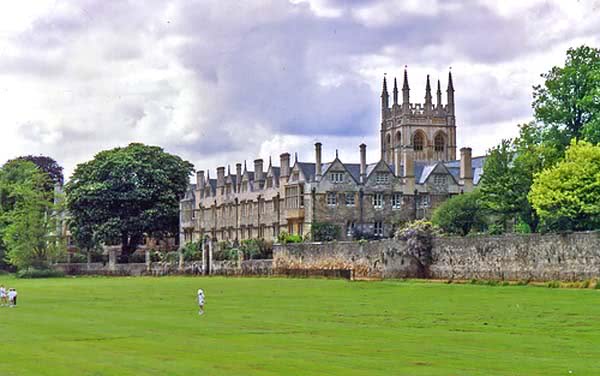
Колледж Мертон, Оксфорд
Dates of Term 2021–25
Please note, the University makes a distinction between dates of term (below) and dates of full term (published above). For further details, please see the Regulations on the number and length of terms.
Fixed dates
| Year | Term | From | To |
| 2021-22 | Michaelmas 2021 | Friday 1 October | Friday 17 December |
| Hilary 2022 | Friday 7 January | Friday 25 March | |
| Trinity 2022 | Wednesday 20 April | Wednesday 6 July | |
| 2022-23 | Michaelmas 2022 | Saturday 1 October | Saturday 17 December |
| Hilary 2023 | Saturday 7 January | Saturday 25 March | |
| Trinity 2023 | Thursday 20 April | Thursday 6 July |
Provisional dates
| Year | Term | From | To |
| 2023-24 | Michaelmas 2023 | Sunday 1 October | Sunday 17 December |
| Hilary 2024 | Sunday 7 January | Saturday 23 March | |
| Trinity 2024 | Saturday 20 April | Saturday 6 July | |
| 2024-25 | Michaelmas 2024 | Tuesday 1 October | Tuesday 17 December |
| Hilary 2025 | Tuesday 7 January | Wednesday 25 March | |
| Trinity 2025 | Wednesday 23 April | Sunday 6 July |
Part-time courses
At Oxford, about 1 in 5 graduate students is studying part time. We offer a wide range of part-time courses, from postgraduate certificates and diplomas to taught master’s degrees and doctoral degrees. These programmes are a flexible way to study for a graduate degree, allowing you to fit your studies around work, family or other commitments.
Our part-time courses are designed with the needs of students at different life and career stages in mind. You may be looking to study for a further qualification and enhance your career prospects while in employment, or to develop your knowledge and skills while balancing home-based commitments.
Part-time study at Oxford is intensive, challenging and rewarding. Students enjoy all the benefits of an Oxford higher degree, including excellent tuition, supervision and study resources, and are valued members of our graduate community.
Teaching formats and patterns of study vary. Part-time students are exempt from the University’s residence requirements, but most part-time courses require students to attend face-to-face teaching in Oxford. Read the information on the course page carefully, and if you’d like to discuss the requirements for a specific course, please contact the academic department directly.
Financial support
|
Home |
A tuition fee loan is available from the UK government to cover course fees in full for Home (UK, Irish nationals and other eligible students with UK citizens’ rights — see below*) students undertaking their first undergraduate degree**, so you don’t need to pay your course fees up front. In 2022 Oxford is offering one of the most generous bursary packages of any UK university to UK and Republic of Ireland students with a family income of around £42,875 or less, with additional opportunities available to UK students from households with incomes of £27,500 or less. This support is available in addition to the government living costs support. *For courses starting on or after 1 August 2021, the UK government has confirmed that EU, other EEA, and Swiss Nationals will be eligible for student finance from the UK government if they have UK citizens’ rights (i.e. if they have pre-settled or settled status, or if they are an Irish citizen covered by the Common Travel Area arrangement). The support you can access from the government will depend on your residency status For comprehensive funding information for medicine students, please see here. |
|
Islands(Channel Islands and Isle of Man) |
Islands students are entitled to different support to that of students from the rest of the UK. Please refer the links below for information on the support to you available from your funding agency: States of JerseyStates of GuernseyIsle of Man |
|
Overseas |
Please refer to the «Other Scholarships» section of our . |
*If you have studied at undergraduate level before and completed your course, you will be classed as an Equivalent or Lower Qualification student (ELQ) and won’t be eligible to receive government or Oxford funding
Структура университета
Оксфордский университет состоит из 38 отдельных колледжей, которые являются независимыми и самоуправляемыми, в каждом есть собственное руководство, включающее главу дома и научных сотрудников.
Также в составе университета есть 6 так называемых общежитий, которые принадлежат к религиозным орденам, но они не имеют статуса колледжа. Каждый входящий в состав университета колледж имеет помещения, где живут, питаются, учатся студенты, а также бар, комнаты отдыха, различные клубы и общества, которые определяют дружескую атмосферу среди учащихся.
Самыми старыми колледжами в составе Оксфордского университета считаются Университетский колледж, колледжи Баллиоль и Мертон. Это вообще одни из самых старых построек Оксфорда.
В колледжах проходят в основном семинары и индивидуальные занятия, а большая часть лекций, лабораторных работ и экзаменов организовывается централизованно.
В Оксфордском университете учатся около 20 тысяч студентов, причем почти четверть из них являются иностранными гражданами. Летом, когда работают языковые школы при университете, количество учащихся намного увеличивается.
Количество преподавателей в Оксфорде составляет около 4 тысяч человек, что позволяет организовать в нем эффективную систему тьюторства. Суть тьюторства в том, что над каждым студентом осуществляется так называемая опека или кураторство специалистом по выбранной студентом специальности. В целом на каждого преподавателя в Оксфорде приходится 4-5 студентов.
Список предоставляемых курсов огромен, количество отделений или факультетов в университете – около 60. Студентам предлагается поступить на различные факультеты по следующим направлениям: математические, гуманитарные, социальные, физические науки, науки о жизни, окружающей среде, природе и т.д.
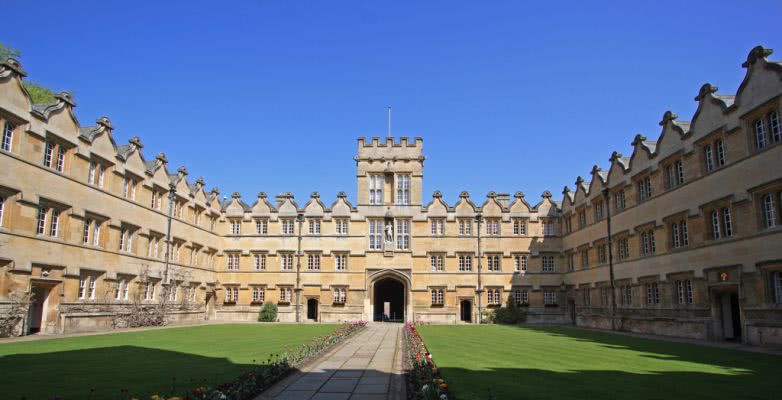
Университетский колледж, Оксфорд
Начнем-с с истории
Оксфордский университет является старейшим(!) университетом в англоговорящем мире. Обучение здесь началось в 1096 году и стремительно развивалось в 12-м веке.
С самого начала своего основания университет играл важную роль в интеллектуальной жизни страны. Более девяти веков он был центром споров и разногласий в науке, религии и искусстве.
Время шло… В течение 20-го и 21-го веков Оксфорд значительно нарастил свой научно-исследовательский потенциал в области естественных и прикладных наук, в том числе медицины и сейчас является одним из лучших университетов мира со своей мощной научно-исследовательской базой.
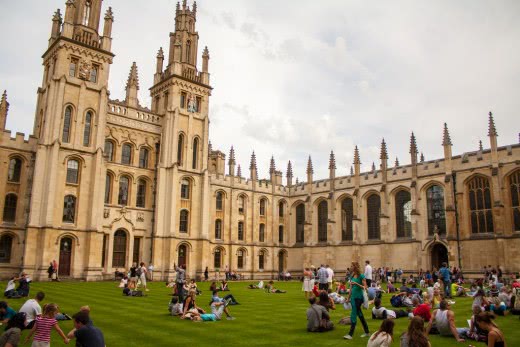
Поступление в Оксфордский университет
Поступить в Oxford очень сложно — в 2016 году из более 19000 подавших документы только 3200 смогли поступить на undergraduate обучение. В среднем, на каждое имеющееся место ежегодно подают документы 6 человек.
Как и в случае со всеми остальных британскими университетами поступающие в Оксфордский университет должны подавать документы через систему UCAS. Поступающие на факультет медицины или стоматологии (также как и в Кембриджский университет) должны подать документы раньше (до 15 октября), чем в обычные установленные сроки.
Поступающие в Оксфорд не могут одновременно пытаться поступать в Кембриджский университет и должны выбрать один из двух. Исключение составляют только подающие на стипендию игры на органе, а также поступающие на второе высшее образование.
Большинство поступающих подают документы в какой-то конкретный колледж. Колледжи, однако, сотрудничают между собой с целью обеспечить место лучшим студентам независимо от их предпочтений. Списки предполагаемых студентов составляются на основе достигнутых и предполагаемых результатов школьных экзаменов, рекомендации из школы и в некоторых случаях письменных вступительных экзаменов или письменных работ, поданных к рассмотрению в университет.
Если в какой-то конкретный колледж в списки попало слишком много поступающих, тогда некоторые из них могут быть переданы в другой колледж, преподающий тот же предмет, но в котором есть незаполненные места.
Затем колледжи приглашают кандидатов на собеседование, как правило, в декабре. Предполагается, что они проведут в университете три дня и на этот срок им предоставляется питание и проживание. Большинство кандидатов будет собеседоваться с преподавателями из более, чем одного колледжа. Собеседования со студентами, поступающими из стран, находящихся за пределами Европы, могут быть проведены дистанционно с помощью интернета.
Предложения о зачислении в Оксфордский университет
обычно рассылаются в начале января. Каждый колледж рассылает их самостоятельно. В среднем, каждый четвертый подавший документы в Оксфорд, получает предложение не от того колледжа, в который подавал документы. Есть факультеты, выдающие «открытые предложения» («open offers») некоторым кандидатам, которые не прикреплены ни к какому конкретному колледжу до результатов экзаменов A Level (или их эквивалентов), приходящими в августе.
Colleges

Magdalen College on May Morning, 2007.
There are 39 colleges of the University of Oxford and seven Permanent Private Halls, each with its own internal structure and activities. Colleges have responsibility for admitting undergraduates and organizing their tuition; for graduates, this responsibility falls upon the departments. All students and many of the academics are attached to colleges, where they live, eat and socialise. It is also the place where students receive one on one teaching sessions, known as tutorials. Each college appoints its own teaching staff and fellows in each subject; decides which students to admit, in accordance with University regulations and is responsible for the domestic arrangements and welfare of its own undergraduates, graduates, post-doctoral researchers, and staff in general. Colleges admit students to study a wide variety of subjects. This is deliberate as it means that students to meet, talk to and make friends with people from different disciplines thus broadening their education. A graduate remains a member of his or her college for life.
The heads of Oxford colleges are known by various titles, according to the college, including warden, provost, principal, president, rector, or master. The colleges join together as the Conference of Colleges to discuss policy and to deal with the central University administration. Teaching members of the colleges (fellows and tutors) are collectively and familiarly known as dons (though the term is rarely used by members of the university itself).
Many University of Oxford colleges host overseas students (primarily from American universities) enrolled in study abroad programs during the summer months.
Oxford University Department for Continuing Education caters mainly for mature and part-time students.
History
Oxford University Press has a rich history which can be traced back to the earliest days of printing. The first book was printed in Oxford in 1478, just two years after Caxton set up the first printing press in England. The University was involved with several printers in Oxford over the next century.
From the late 1800s OUP began to expand significantly, opening the first overseas office in New York in 1896. Other international branches followed, including Canada (1904), Australia (1908), India (1912), and Southern Africa (1914).
Today, the Press is a global organization with more than 6,000 employees in 53 countries.
Programs
Central governance
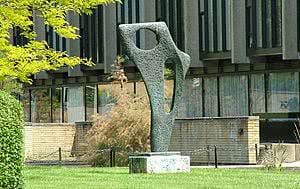
St Catherine’s College, founded in 1962, is the youngest undergraduate college
The university’s formal head is the Chancellor (currently Lord Patten), though as with most British universities, the Chancellor is a titular figure, rather than someone involved with the day-to-day running of the university. Elected by the members of Convocation, a body comprising all graduates of the university, the Chancellor holds office until death.
The Vice-Chancellor is the de facto head of the University. Five Pro-Vice-Chancellors have specific responsibilities for Education; Research; Planning and Resources; Development and External Affairs; and Personnel and Equal Opportunities. The University Council is the executive policy-forming body, which consists of the Vice-Chancellor as well as heads of departments and other members elected by Congregation, in addition to observers from the Student Union. Congregation, the «parliament of the dons,» comprises over 3,700 members of the University’s academic and administrative staff, and has ultimate responsibility for legislative matters: It discusses and pronounces on policies proposed by the University Council. Oxford and Cambridge (which is similarly structured) are unique for this democratic form of governance.
Two university proctors, who are elected annually on a rotating basis from two of the colleges, supervise undergraduate discipline. The collection of University Professors is called the Statutory Professors of the University of Oxford. They are particularly influential in the running of the graduate programs within the University. Examples of Statutory Professors include the Chichele Professorships, the Drummond Professor of Political Economy, and so forth. The various academic faculties, departments, and institutes are organized into four divisions, each with their own Head and elected board. They are the Humanities Division; the Social Sciences Division; the Mathematical, Physical and Life Sciences Division; and the Medical Sciences Division.
Teaching and degrees
Undergraduate teaching is centered upon the tutorial, where one to three students spend an hour with a teacher discussing their week’s work, usually an essay (arts) or problem sheet (sciences). Students usually have around two tutorials a week. These tutorials are complemented by lectures, classes, and seminars, which are organized on a departmental basis. Graduate students undertaking taught degrees are usually instructed through classes and seminars, though naturally there is more focus upon individual research.
The university itself is responsible for conducting examinations and conferring degrees. The passing of two sets of examinations is a prerequisite for a first degree. The first set of examinations, called either Honor Moderations («Mods» and «Honor Mods») or Preliminary Examinations («Prelims»), are usually held at the end of the first year (or after five terms in the case of Classics). The second set of examinations, the Final Honor School («Finals»), is held at the end of the undergraduate course. Successful candidates receive first, second, or third-class honors based on their performance in Finals. Research degrees at the master’s and doctoral level are conferred in all subjects studied at graduate level at the university.
Overseas students
If you are not classified as a ‘Home’ student you will be classed as an ‘Overseas’ student and you should be aware that you will not be eligible for a tuition fee loan from the UK government. If you are an Overseas student, you will be charged a significantly higher level of course fee, which will vary according to your programme of study (see the courses listing for full details).
| Fee status | Annual course fees payable by student |
| Overseas | Between £27,840 and £39,010* |
* Clinical medicine fees will be significantly higher for Overseas students, please visit the dedicated Fees and Funding section within the Medicine course page for full details.
Additional Fees and Charges Information for Medicine
Pre-clinical Medicine
In the third term of the second year, students who undertake a research project may wish to remain in Oxford after the end of full term to facilitate completion of their project. (See the likely range of living costs for an additional month in Oxford.) However, this extended residence in Oxford is not a requirement and students should be aware that no financial support is available to help with any additional living costs during this time.
Clinical Medicine
Students in the Clinical School study for extended terms. You will need to budget for higher living costs in these three years, as you will be required to be in Oxford for longer than the standard terms. (See the likely range of living costs for an additional month in Oxford.)
- Year 4 – 40 weeks
- Year 5 – 48 weeks
- Year 6 – 48 weeks, including 10 weeks elective study (see below)
For more information about fees and funding for this course, please see Funding for UK/EU Medical Students.



